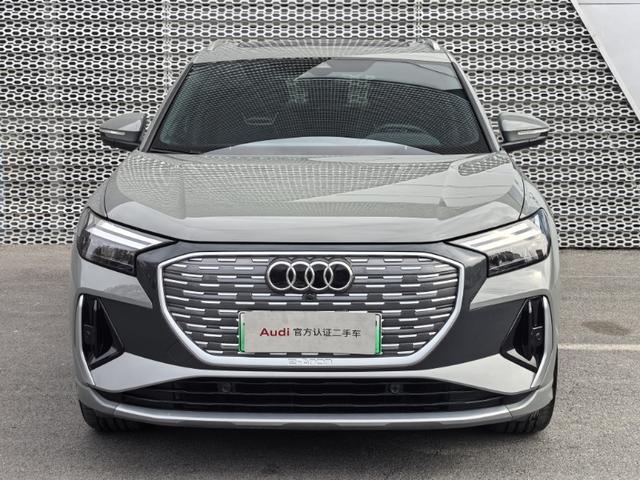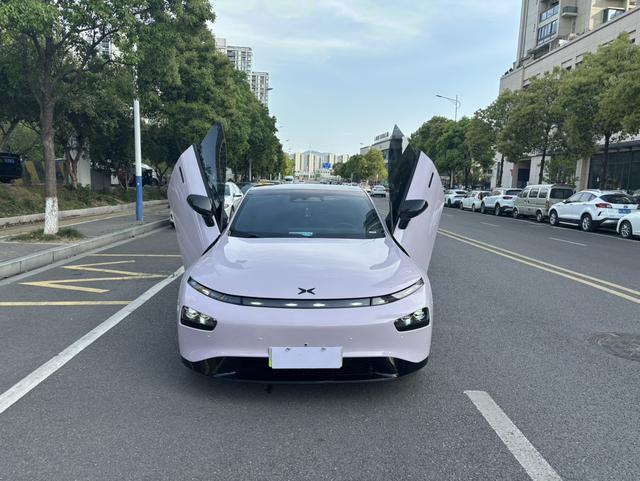Smart Guide to Finding Your Perfect Family Vehicle
Finding the perfect used cars for your family's travel needs requires careful consideration and research. Today's market offers an extensive selection of pre-owned vehicles that can provide excellent value while meeting your family's requirements for safety, comfort, and reliability. Understanding how to navigate the used car market effectively can save you thousands of dollars while ensuring you drive home in a vehicle that will serve your family well for years to come.
The journey to finding the ideal family car in the pre-owned market involves balancing multiple factors, from budget considerations to safety features and space requirements. With proper research and attention to detail, you can discover exceptional used cars that offer the perfect blend of functionality, comfort, and value for your family's unique needs.

Essential Features to Consider in Family-Oriented Used Cars
Safety Systems and Crash Ratings
When evaluating used cars for family travel, safety should be your top priority. Look for vehicles with high crash test ratings from both the NHTSA and IIHS. Modern safety features such as multiple airbags, anti-lock braking systems (ABS), electronic stability control, and backup cameras are essential. Many recent model used cars also come equipped with advanced driver assistance systems (ADAS) like lane departure warnings and automatic emergency braking.
Pay special attention to child safety features, including LATCH systems for car seats, child safety locks, and rear-seat reminder systems. These features have evolved significantly over the years, and newer used cars often provide enhanced protection for young passengers.
Space and Storage Capabilities
Family vehicles need to accommodate not just passengers but also their belongings. Assess the cargo space with all seats in use and folded down. Look for used cars with flexible seating configurations, allowing you to adapt the interior space based on your changing needs. Consider features like split-folding rear seats, adjustable cargo floors, and hidden storage compartments.
Don't forget to evaluate the accessibility of the cargo area. A low load height and wide-opening tailgate can make it significantly easier to load strollers, groceries, and sports equipment. Some used cars offer hands-free liftgate operation, which can be incredibly convenient when your hands are full.
Evaluating Reliability and Maintenance History
Understanding Vehicle History Reports
Before committing to any used cars, obtain detailed vehicle history reports from reputable services. These reports reveal crucial information about previous accidents, maintenance records, ownership history, and potential title issues. Pay close attention to regular maintenance intervals and whether the previous owners followed the manufacturer's recommended service schedule.
Look for used cars with complete service documentation, as this indicates responsible ownership and proper maintenance. Be particularly cautious of vehicles with gaps in their maintenance history or those that have been involved in serious accidents.
Long-term Reliability Considerations
Research the reliability ratings and common problems associated with specific makes and models. Some used cars have proven track records of reliability, while others may be prone to expensive repairs. Consider the total cost of ownership, including fuel efficiency, insurance rates, and typical maintenance expenses.
It's worth investigating which model years of particular vehicles had the fewest reported problems. Sometimes, certain model years stand out as especially reliable, making them excellent choices in the used car market. Consider manufacturer warranties that might still be in effect and what they cover.
Technology and Comfort Features
Entertainment and Connectivity Options
Modern families rely heavily on technology, even in their vehicles. When browsing used cars, look for models equipped with features like Bluetooth connectivity, USB ports, and entertainment systems. Many recent pre-owned vehicles offer smartphone integration through Apple CarPlay or Android Auto, making it easier to access navigation, music, and communication features safely while driving.
Consider the placement and accessibility of entertainment features, especially for rear-seat passengers. Some used cars come with rear-seat entertainment systems, multiple charging ports, and Wi-Fi capabilities, which can be invaluable during long family trips.
Climate Control and Comfort Systems
Family comfort during travel is crucial for enjoyable journeys. Evaluate the climate control system's effectiveness, including the presence of rear air vents and separate temperature controls for different zones. Look for used cars with quality insulation and minimal road noise, as these factors significantly impact comfort during long trips.
Additional comfort features like heated seats, power-adjustable seating, and ample legroom in all rows can make a substantial difference in daily use. Don't overlook the importance of easy-to-clean materials and durable upholstery, as these practical considerations become increasingly important with family use.
Test Drive and Final Assessment
Comprehensive Vehicle Inspection
Before finalizing any purchase, arrange for a thorough inspection by a qualified mechanic. They can identify potential issues that might not be apparent during a casual inspection of used cars. Pay special attention to the suspension, brakes, and transmission, as these systems are crucial for safety and can be expensive to repair.
During the inspection, check all electronic systems, including safety features, entertainment systems, and climate control. Ensure all power windows, locks, and other convenience features function properly. This comprehensive evaluation helps prevent unexpected repairs after purchase.
Family-Focused Test Drive
When test driving used cars, bring the whole family if possible. This allows you to assess how well the vehicle meets everyone's needs. Test the ease of entry and exit, especially for children and elderly family members. Pay attention to visibility from all seating positions and the effectiveness of the climate control throughout the cabin.
Drive the vehicle in various conditions, including highway travel and city driving. This helps evaluate the car's handling, acceleration, and braking characteristics. Listen for unusual noises and assess the overall driving comfort. Consider how the vehicle handles with a full passenger load, as this can significantly affect performance.
Frequently Asked Questions
What age of used cars should I consider for family use?
For family use, consider used cars that are 3-7 years old. These vehicles typically offer a good balance of modern safety features and technology while being more affordable than new models. Vehicles in this age range often have depreciated significantly from their original price but still have plenty of reliable service life remaining.
How important are safety ratings when choosing a family vehicle?
Safety ratings are crucial when selecting used cars for family use. Look for vehicles with high ratings from both NHTSA and IIHS. These independent assessments evaluate crash protection, accident avoidance capabilities, and safety technology effectiveness, providing valuable insights into how well a vehicle will protect your family.
What documentation should I request when buying a used family car?
Request the vehicle's complete service history, previous ownership records, accident reports, and maintenance documentation. Also, obtain a comprehensive vehicle history report from a trusted provider. These documents help verify the car's condition and maintenance history, ensuring you make an informed decision when selecting from available used cars.

